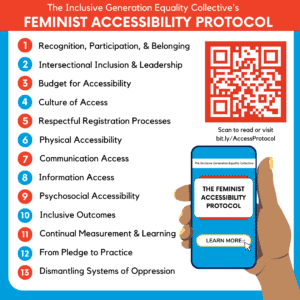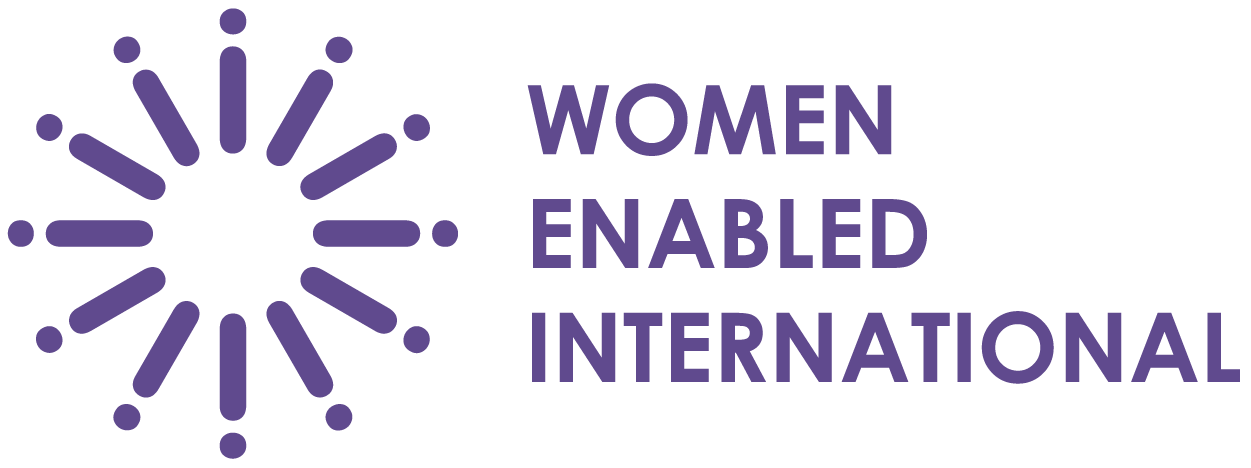***Esta página está disponible en español aquí***
What is the Feminist Accessibility Protocol?

The Protocol asks States, feminist civil society, United Nations entities, and other feminist actors to make a pledge to ensure that, moving forward, gender equality discussions and decision-making spaces are fully accessible to and inclusive of feminists with disabilities. Each of the 13 commitments in the Protocol is a call for action on a specific aspect of accessibility and inclusivity in feminist events and meetings, including event planning, execution, and follow-up.
The Protocol also includes an Annex with good practices on accessibility and the outcomes of focus groups on accessibility in gender equality spaces, conducted with 109 women and gender-diverse persons with disabilities from 37 countries to inform the Protocol.
Access the Feminist Accessibility Protocol in various formats:
The Protocol is available in various accessible formats.
To access the English version of the Protocol, click here.
To access the Easy Read version of the Protocol (in English), click here.
To access the International Sign version of the Protocol, click here.
To access the Spanish version of the Protocol, click here.
Sign on to the Feminist Accessibility Protocol
If you are a feminist organization, State, UN entity, or other actor organizing meetings or events on gender equality, we invite you to sign on to the Protocol and join our efforts to create accessible gender equality spaces.
Click here to sign on to the Protocol.
Who created the Feminist Accessibility Protocol and why?

The Protocol was created as a response to accessibility barriers in gender equality spaces that hindered the participation of feminists with disabilities, in particular, the Generation Equality Forums. The IGEC developed the Protocol to raise awareness about the importance of ensuring accessibility, gather commitments towards accessibility in gender equality spaces, and encourage action from States, feminist organizations, UN entities, and other actors to make those spaces fully accessible to, inclusive of women, girls, trans, intersex, and nonbinary persons with disabilities.
What else has the Inclusive Generation Equality Collective done?
In addition to developing the Feminist Accessibility Protocol, the IGEC actively engaged with the Generation Equality Forums, convened by UN Women and held virtually in Mexico City and Paris in 2021. Prior to the Forums, the Collective developed an Advocacy Platform, endorsed by over 280 organizations and individuals, to call for a Generation Equality process that included a disability and gender intersectional perspective.
During the Forums, the IGEC members faced various accessibility barriers that limited their participation and requested action from the organizers. Through blog posts and open letters to UN Women and the government of France after both events, they called attention to the inaccessibility of the forums and advocated for a commitment to accessibility, which inspired the development of the Protocol.
Who can join the Inclusive Generation Equality Collective?
If you are a woman, girl, trans, intersex, or nonbinary person with disabilities, or an ally in the disability rights and feminist movements, you are welcome to our Collective! Click here to send us a message to join the IGEC work.
